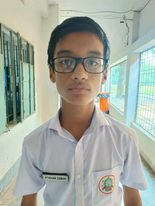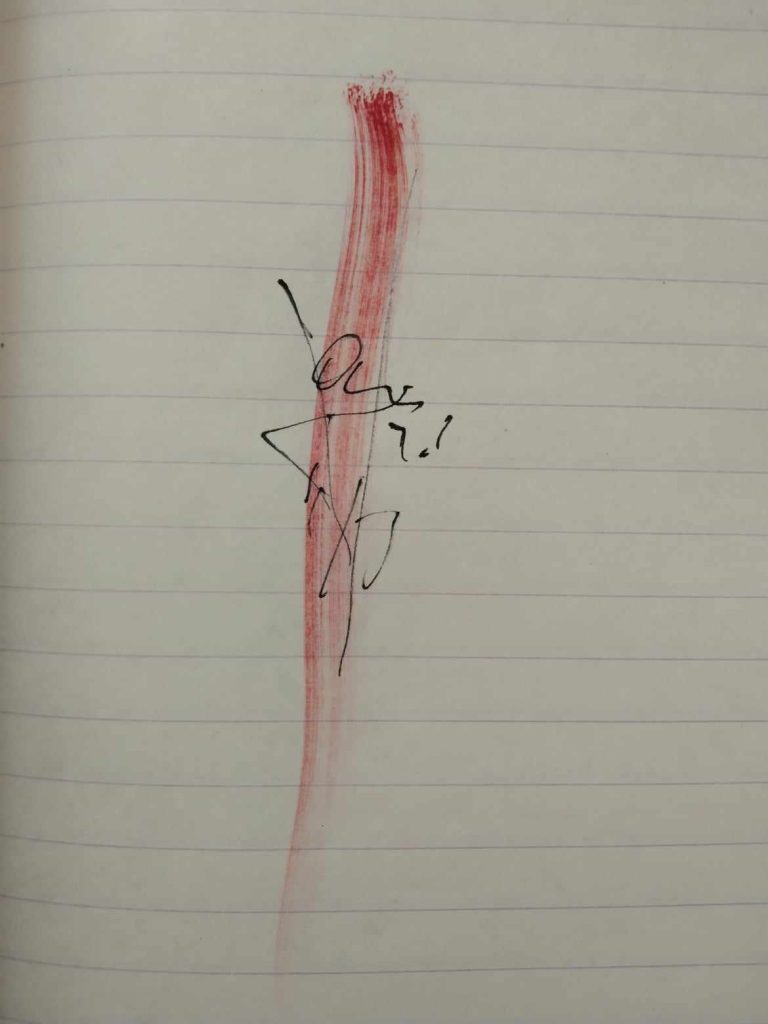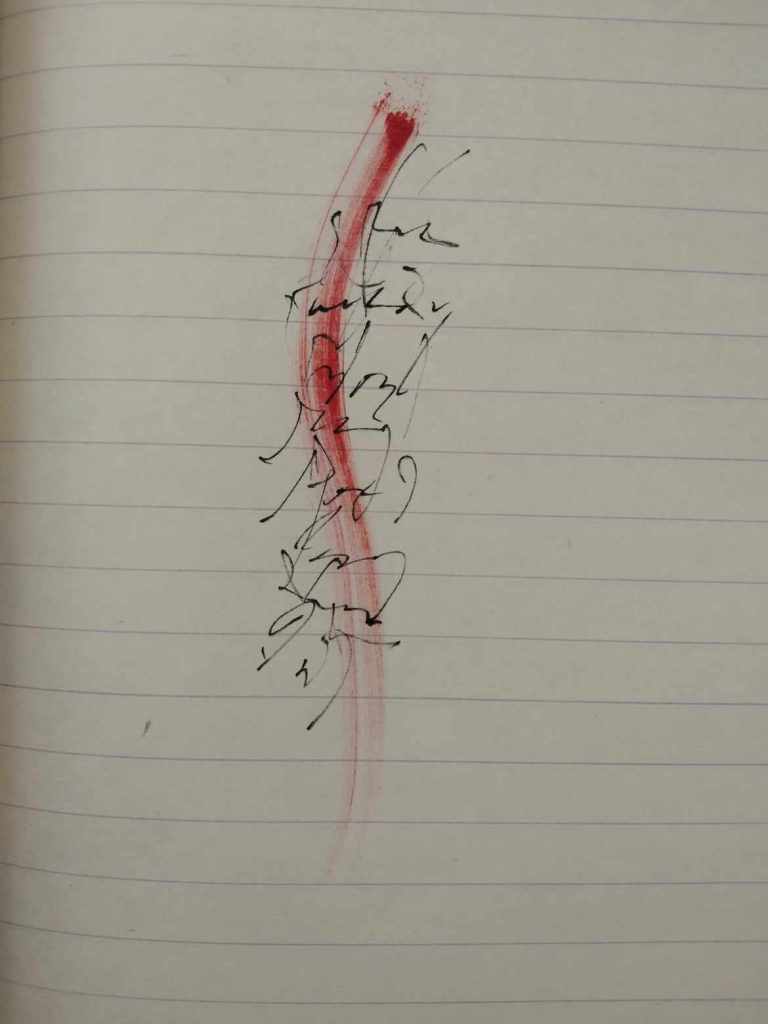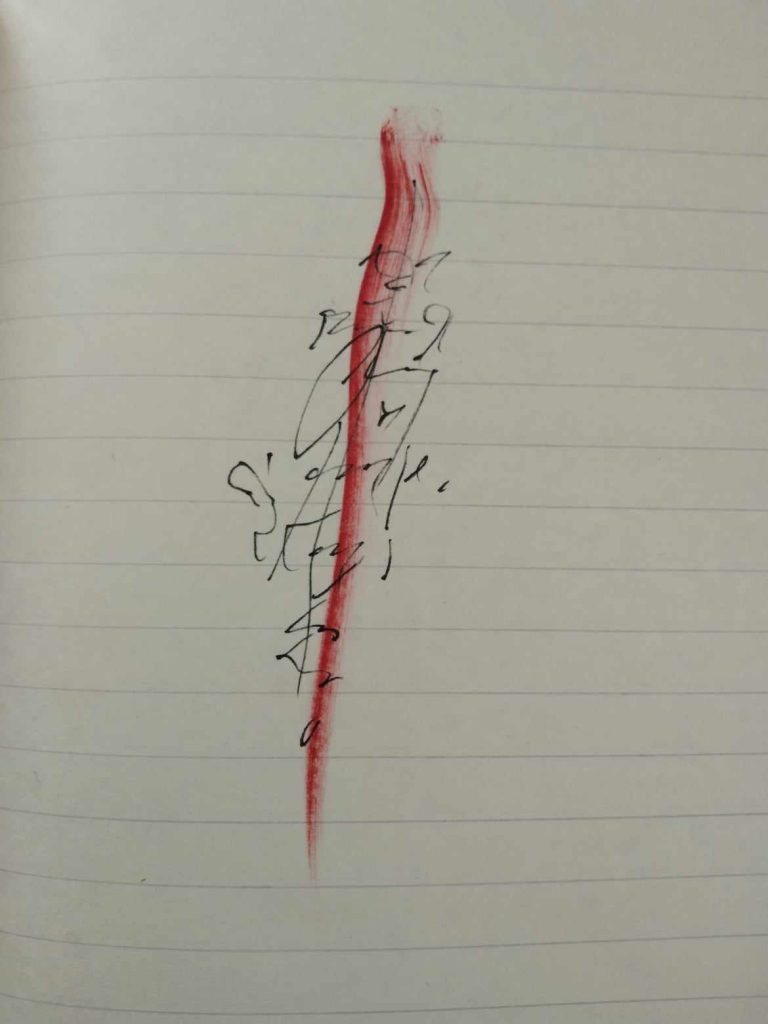With Notes of Irony Call it dogged by bad luck. Call it a fool’s prophecy. Call it fate lighting a cigarette after it fucks you in the arse. Call it an albatross around your neck. Call it an ancestral curse. Blame it on crossing paths with a black cat. Blame it on your astrological sign. Blame it on the neighbour who dabbles in witchcraft. Blame it on the devil. Blame it on your treacherous spouse for opening an umbrella inside the house. Blame it on a bad penny. Blame it on a broken mirror. Blame it on the politician you elected. Blame it on old age. Blame it on the youth of today. Say to yourself you deserve it all. Say it with gusto. Say it’s one giant goat rodeo. Say it’s too late to turn it around. Say it while donning the paint of a tragic clown. Say it with self-entitlement. But for pity’s sake, never say it’s the sum of your choices.
Category Archives: CHAOS
Poetry from Kristy Raines

I CAN NEVER LOSE YOU Age never mattered when it came to our love or what treasures we had stored up in our hearts Only your heart would understand my whispers The storm in you rages when we are alone And there is no doubt of the feelings that I have for you.. so special In my life, I have suffered losses; people and things I loved I lived through each one, although it was hard at times Moments ago I lost myself to you and am lost in you now But to ever lose you would put me over the edge. I can't even think of it.... IF ONLY FOR NOW Walk with me if only for now Wherever life takes us is home These moments are precious and life could end without notice Dreams can come true or die I have always been with your through time I was the shadow that waited from afar Did you not notice me on a sunny day or hear my whisper in your ear through a warm breeze? You could not see me in the past, but I am your future Only the time we have been given is guaranteed I will walk with you until we get to that fork in the road Whether in reality or dreams... either way you'll be mine. YOUR SWEETEST DREAM I pretend to not see you look my way I sigh because the love you have for me is so deep. You take my breath away when you come towards me My love for you only grows and I can't imagine myself ever being without you... Always take me with you I long for you to always drown my life with your love There is nothing you can give me that is worth more than that I never fear what is in our future, whether joy or sorrow. As long as we do it together is all that matters to me... Never leave And I pray you will always love me as your Sweetest Dream... Hold me closer THE REALIZATION OF LOVE You might not be looking for it, and at times you even try to run from it. But sometimes it just happens. You look at each other, you smile, and you just know ... When love happens, you can't stop it. Suddenly, life feels a lot brighter and happier. You become aware of his smile when he looks at the little things about you. And those little things become the poetry in his heart that he had been missing. Those little things also taught him how to love. ON EVERY PAGE On every page of our life together I will sign my name because your heart belongs to me, just as with every memory we share You appear in every poem I write, and in every angelic song that I have sweetly whispered in your ear True, is every love story we've lived My smile is intentional for you are mine Every heartbeat keeps in time with the music of our rhythmic nights You are my Everywhere and my Always. Bio: Kristy Ann Raines is an American poet and author born in Oakland California, USA. Kristy has five books which will soon be published. One anthology with a prominent poet from India, Dr. Prasana Kumar Dalai, will launch sometime in October 2023 called, “I Cross my Heart from East to West.” She has also written two fantasy books entitled, “Rings, Things and Butterfly Wings” and “Princess and The Lion”, a collection of poems in English,” Walking Without You”, a collection in French, “Little Rose Poetry”, and one in Arabic called, “Jasmine and Roses", to be released in the future. Kristy has received many literary awards for her unique style of writing.
Poetry from Lilian Dipasupil Kunimasa

Ah, Death Once, Death was a fearful word Cutting life with unrelenting sword Cold and stiff, underground to hoard Some naked, more in varnished board All that's living, Death eventually lord No one can choose on own accord The time to willingly cut the cord But then, is Death really just an end? The goal straight, no one can bend? How can broken hearts be mend? Where to, grieving prayers can send? Gathering that one must attend Careful that words will not offend Comfort and strength to lend. Death is not the end, but a beginning From cold winter, comes the spring New trails for green meadows bring Knot or unknot the old with new string Death, must the living yearn or fear? Emotions and ambitions to stir The future, sure yet vaguely unclear. Nah, nah, nah. Everyone needs someone to love, Everyone needs someone who'll love. Coz we're human needing humans That ain't wrong nor weird We're not crazy, we're not weirdos We're social creatures not bimbos That ain't wrong, so it goes A Lone Wolf searching for a pack Home waiting for my coming back That ain't wrong to lack Wanting wings for my head to tuck Family feathers not wanting to pluck That ain't wrong to wish luck Nah nah nah That ain't wrong nor weird That ain't wrong, so it goes That ain't wrong to lack That ain't wrong to wish luck Everyone needs someone to love, Everyone needs someone who'll love. Searching, wishing for one true love. Nah, nah, nah, normal ones Lilian Dipasupil Kunimasa was born January 14, 1965, in Manila Philippines. She has worked as a retired Language Instructor, interpreter, caregiver, secretary, product promotion employee, and private therapeutic masseur. Her works have been published as poems and short story anthologies in several language translations for e-magazines, monthly magazines, and books; poems for cause anthologies in a Zimbabwean newspaper; a feature article in a Philippine newspaper; and had her works posted on different poetry web and blog sites. She has been writing poems since childhood but started on Facebook only in 2014. For her, Poetry is life and life is poetry. Lilian Kunimasa considers herself a student/teacher with the duty to learn, inspire, guide, and motivate others to contribute to changing what is seen as normal into a better world than when she steps into it. She has always considered life as an endless journey, searching for new goals, and challenges and how she can in small ways make a difference in every path she takes. She sees humanity as one family where each one must support the other and considers poets as a voice for truth in pursuit of equality and proper stewardship of nature despite the hindrances of distorted information and traditions.
Essay from Iftikhar Zaman Ononno

A Good Citizen A good citizen is one who does good works in society. He must have some good qualities. He is conscious, dutiful and active. Again he must have the qualities of truthfulness, honesty and tolerance. He must have proper education. He must also be able to apply his knowledge. So, he needs skills to do things. He must maintain discipline in society. He has to abide by the laws of the country to maintain social peace and happiness. He loves his country and country people more than his life. He does nothing against the interest of his country. In fact, citizen having character live a life of virtue. So, he is a good citizen. Iftikhar Zaman Ononno is a student of grade 7 in Harimohan Government High School, Chapainawabganj, Bangladesh.
Essay from Asadova Sabina
Sabina Asadova
Отправлено из Почты Mail.ru
IN THE SKY OF DREAMS
A person should set a goal for himself/herself in life... Some people set a small goal for themselves: buying a new phone, going on vacation, others for a bigger one: a million dollar turnover per month. Plans such as creating a business or building a house for his family. Some people dream of unattainable things: solving the problem of poverty in the country, living in space. That's why you should have enough intelligence to set a goal that matches your strength.
"The goal must be to achieve happiness, otherwise the fire will not roar enough, the driving force will not be powerful enough - therefore, success will not be fully achieved," - says Theodore Dreiser.
In fact, if a person has set a goal for himself, he should devote all his energy to it and avoid all other distractions.
Each of you has your own place in life. The main thing for us is your desire to speak. Among the invited guests, we can see that you are more enthusiastic than others. Don't forget, it all depends on you! It's time to show yourself!
We invite you to the world of fear! This world will be a testing world for you. In this, you will test your ability, your ability to get out of the situation in the face of difficulties and your readiness for drastic actions!
And we will show you the ways to skillfully get out of various difficult situations and make impossible things possible. And you just move forward!
There are people who leave the world without a dream. Such people do not swim like fish, on the contrary, the current carries them. Therefore, in the beautiful garden called life, dream of growing a flower that amazes the world with its fragrance.
As you walk towards the goal, the difficulty increases as you get closer. So, if you have set a great goal, you will achieve it with perseverance and beautiful patience. After all, the key to achieving the goal is hard work, patience and research.
Asemic poetry from Grzegorz Wroblewski



GREAT FATHER You will never understand me, Son. Now, when you walk down a colorful street in Copenhagen, you see two dealers and a huge balloon-like rat. Enjoy this view! You will never understand me, Son. Admire the ladies who put lace panties in their bags. Enjoy your life while you can. ARMAGEDDON DAYS There was nothing unusual about it. Children played in the squares, and alcoholics slowly drank beer on the benches. The sun suddenly changed its color. The policeman fired a bullet, but it hit the nearby trees. And the world ceased to exist. CONVERSATIONS WITH THE PROPHETS I'm looking for happiness, could you advise me on how to find it? And what is happiness for you? That's what I don't know, I'm tracking happiness to no avail. Once you find it, come to me again. Then I won't need you anymore. You have it within you, but you must first see the man with the bird's head on the solar orb. It's too complicated. Happiness is not a watermelon thrown in the trash.
Grzegorz Wróblewski was born in 1962 in Gdańsk and grew up in Warsaw. Since 1985 he has been living in Copenhagen. English translations of his work are available in Our Flying Objects (trans. Joel Leonard Katz, Rod Mengham, Malcolm Sinclair, Adam Zdrodowski, Equipage, 2007), A Marzipan Factory (trans. Adam Zdrodowski, Otoliths, 2010), Kopenhaga (trans. Piotr Gwiazda, Zephyr Press, 2013), Let’s Go Back to the Mainland (trans. Agnieszka Pokojska, Červená Barva Press, 2014), Zero Visibility (trans. Piotr Gwiazda, Phoneme Media, 2017). Asemic writing book Shanty Town (Post-Asemic Press, 2022).
Poetry from Ahmad Al-Khatat
Why Am I Sad? Does that mean I’m lucky? If so, Then why I don’t remember the dust on my joy? Has my confidence disappeared with the cigarette ashes? People age by love poems and happy-ending stories. Meanwhile, I age by the number of lonesome years. My brother tried & failed to teach me how to stop crying. The very first moment I turned 18 eighteen years old, My grandpa came into my dream and said “ I’m no longer in trouble to express my mental illness.” Thirty-four years and yet I shamefully liquoring up and smoke. Colourless wounds, foggy nightmares and rusty sorrows in me. Why am I sad? When everything is great but not remarkable.
Soul & Hope I am riding in the subway again. Breathless & sweaty melancholy visage, as if autumn wear my soul & hope. Her springy perfume permeate in me. She whispers to the blooms flowers while I am in sorrow to her dead roses. I ask her to touch me gently, to kiss me softly. Will she recall my heart how to bury the past? I am wild with love, with a lifetime desire. I am not an widow chair waiting for her dead soilder. Stand side by side, I need to dream & not fall apart. Hand in hand, I’m thirsty to explore you in darkness.
